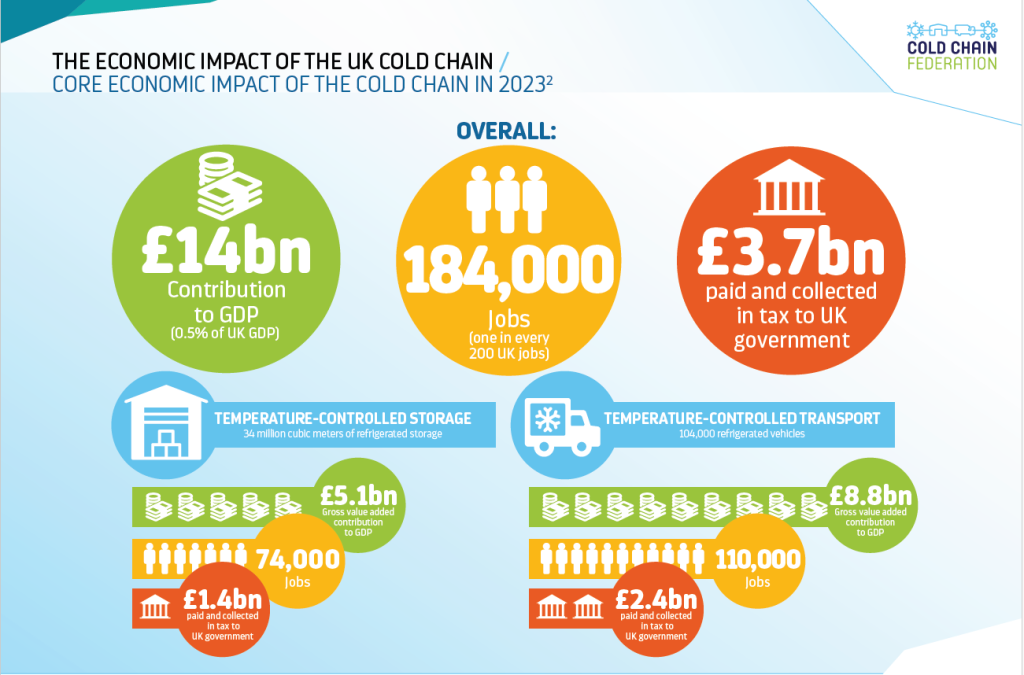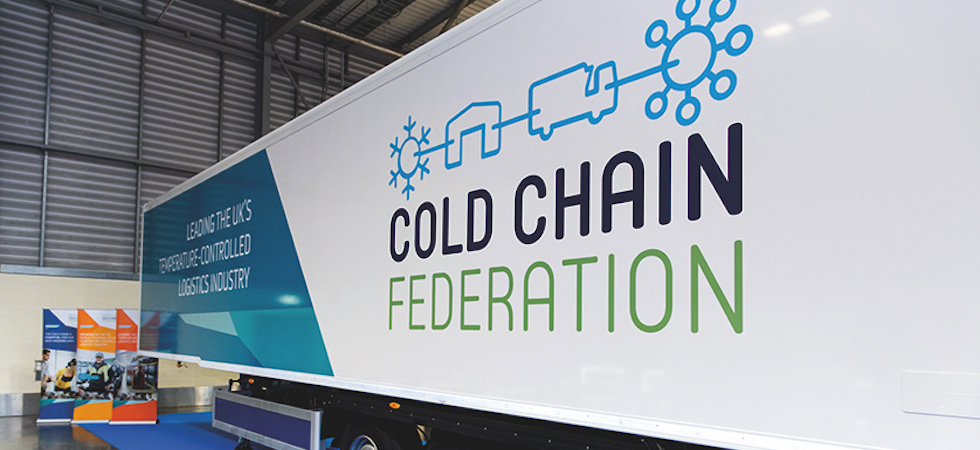The Cold Chain Federation (CCF) has published its Cold Chain Report 2024, highlighting the cold chain’s role in driving economic activity across the UK.
The report found that of the overall jobs supported across the country by the cold chain, most were concentrated in the East Midlands (23,000), East of England (22,000) and the North West (21,000).
Key findings included:
- UK GDP benefitted from a £14 billion gross value added (GVA) contribution
- The sector supported 184,000 jobs
- £3.7 billion in tax revenue was generated for the UK Government
One new element of the report is the introduction of maritime trade and its use of refrigerated shipping containers (reefers). CCF revealed that last year, 342,425 reefers were imported into UK ports, which was no change from 2022. London Gateway was the busiest port, with 51% of all traffic coming through the site. The sector saw a 9% decrease in exports.
‘State of the Cold Chain’
Another aspect of the report looked at year-on-year comparisons of the cold chain sector, finding that a key concern is a 46% jump in energy costs in 2023 compared to 2022. However, the report detailed how over a quarter of cold stores running on renewable energy.
Cold stores operating blast freezers increased by 3% in 2023 when compared to 2022, and the use of CO2 as a primary refrigerant in cold stores increased by 4%. The cost of diesel used in Transport Refrigeration Units increased by 4% in 2023.

The report also found that the cold chain had supported £12 billion in UK exports and £32 billion in frozen and chilled goods imports. It revealed that 49% of all food and beverages produced in the UK – valued at £50 billion – require chilling or freezing.
“The Cold Chain Report 2024 unequivocally demonstrates the cold chain’s status as a cornerstone of the UK economy.”
Toby Peters, Professor of Cold Economy at the University of Birmingham, said: “The cold chain has a critical role to play in a future sustainable and prosperous UK and this report helps shines a light on the criticality of supporting cold chain development and will help ensure the sector finally gets the recognition it deserves.
“The landscape in which the UK’s cold chain operates has undergone profound change in recent years. In the face of a multitude of pressures from external factors such as rapidly changing consumer demands and trade flows following Brexit, the industry is also adapting to a changing climate and the need to be sustainable. There are promising signs of progress but much more still to be achieved.”
Tom Southall, deputy CEO of the CCF, said: “The Cold Chain Report 2024 unequivocally demonstrates the cold chain’s status as a cornerstone of the UK economy, from supporting millions of jobs to facilitating billions in trade, this sector is a vital engine of growth. We urge policymakers and industry leaders to recognise the cold chain’s immense potential and invest in its continued development.”









